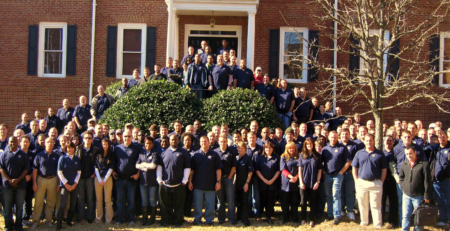We are in the PC+ era: why the death of the PC is a myth!
 The news is wrong. Or at least the perception of it is.
The news is wrong. Or at least the perception of it is.
If you look at only recent sales (PCs down 10 percent this year, tablets up 50 percent, according to Gartner market research ), you might think the world has already entered the so-called “post-PC” era of computing. Lending credibility to that belief, an estimated four out of five Americans have access to or own a smartphone.
), you might think the world has already entered the so-called “post-PC” era of computing. Lending credibility to that belief, an estimated four out of five Americans have access to or own a smartphone.
Game over. The PC is dead. Trash your mouse and keyboard.
Wrong. While it’s true that smart devices have overtaken the total number of traditional computers, the former are largely complimenting, not replacing the latter. We don’t live in a “post-PC” era. We live in a “PC plus” epoch.
The reason: Traditional computers still account for the bulk of our total computing and Internet time, according to multiple reports. This is largely due to work demands. In other words, heavy digital lifting (i.e. creating, inputting and contributing digital things) requires significantly more time than it does to consume, monitor or quickly react to information — things that smart devices excel at.
‘I’ve seen a lot of people try to use tablets and then move back to laptops.’
– David Cole
CED Solutions is uniquely situated to provide the training necessary to use PC’s in the business environment and integrate tablets, iPads, and other devices to the business environment.
Although we may not be as intimate, personal, and fond of traditional computers as we are with handhelds now, we still heavily rely on the former. A lot of that has to do with size.
“The most important reason why more than a billion people will continue to perform the bulk of their computing on traditional PCs are basic physical attributes,” found a recent report from Deloitte , a notable professional service firm. “PCs have larger screens, full- or mid-size keyboards and mice or trackpads” — things white-collar humans prefer to use for time-consuming, detailed or otherwise specialized work.
, a notable professional service firm. “PCs have larger screens, full- or mid-size keyboards and mice or trackpads” — things white-collar humans prefer to use for time-consuming, detailed or otherwise specialized work.
“I’ve seen a lot of people try to use tablets and then move back to laptops,” said David Cole, a help desk manager from Boston. “They still use an iPad or smartphone to read email, but they typically wait until they get back to their desk or laptop to do ‘real work.’”
What constitutes “real work”? Depending on the person, one cutoff is anything from 50 up to 500 words. Anything below that is okay for smart devices. Anything above that, including heavy manipulative functions such as number crunching in Excel, creative production, long-form writing, and copy and paste were best suited for PC, according to people I spoke to.
That said, there are two anomalies to the “PC Plus” economy. The first is the trend of some baby boomers to contribute and work more on tablets than younger generations that learned how to operate traditional computers in their formative years.
My mother-in-law is a good example of this. Before the rise of smartphones and tablets, she almost never participated or contributed digitally from her PC. Since acquiring an iPad two years ago, however, she emails and computes considerably more. For her and many others, touch interfaces are easier to use than keyboards with 125 intimidating buttons.
The other inconsistency depends on whether you reside in a developed or developing country. Of the 1.5 billion estimated PCs in use, many are owned by businesses and consumers that can afford to own a smartphone, tablet, and PC, according to a recent Pew Internet study. Meanwhile, the majority of developing countries are gravitating towards cheaper smart devices, neither owning or replacing a PC in the first place.
When a PC is replaced by a tablet in a developed country, the occurrence is rare, Deloitte reported. Of the estimated 500 million PCs being used by businesses, just 5 million have been replaced by a smart device over the last year—just 1 percent. That percentage is likely higher among consumers, but certainly not enough to suggest a sea change.
A friend of mine recently tried to replace his laptop and desktop with a smartphone and tablet, but changed his mind after a few weeks. “My tablet and smartphone were too much of an in-between,” he recalled. “When it comes to getting stuff done, I suspect I’ll always need a keyboard. As exciting as phones and tablets are, they really only intensify our computing.”
That could certainly change as generations that were born with touch devices in their hands grow older. But in this, a largely Gen-X, Millennial, and Baby Boomer age, traditional computers are still a part of everyday life.
Blake Snow is a writer and content advisor from Provo, where he lives with his family and suffers from writer’s block while penning his first book.
is a writer and content advisor from Provo, where he lives with his family and suffers from writer’s block while penning his first book.
http://www.foxnews.com/tech/2013/10/25/why-death-pc-is-myth/?intcmp=obnetwork
CED Solutions is a Cisco Learning Partner, Microsoft Gold Learning Partner and the #1 location for Microsoft Certifications in North America. CED Solutions is a Platinum CompTIA Partner and is one of the largest providers of training in North America. The Atlanta facility provides IT training for up to 490 students per day, with three buildings dedicated to training. CED Solutions provides training for up to 10,000 students per year and students take up to 800 certification exams every two weeks.
CED Solutions provides training and certification for Cisco CCNA; Cisco CCNP; Cisco CCNA Security; Cisco CCNP Security; Cisco CCNA Voice; Cisco CCNP Voice; Microsoft MCSA: Windows 2012 Server; MCSA: Windows 2008 Server; MCSA: SQL 2012 Server; MCSE: Business Intelligence SQL 2012 Server; MCSE: Data Platform SQL 2012 Server; MCSE: Desktop Infrastructure Windows 2012 Server; MCSE: Server Infrastructure Windows 2012 Server; MCPD: 6 Cert Visual Studio Developer; MCSD: Windows Store Apps C#; MCSD: Windows Store Apps HTML5; IT Healthcare Technician and many more.



